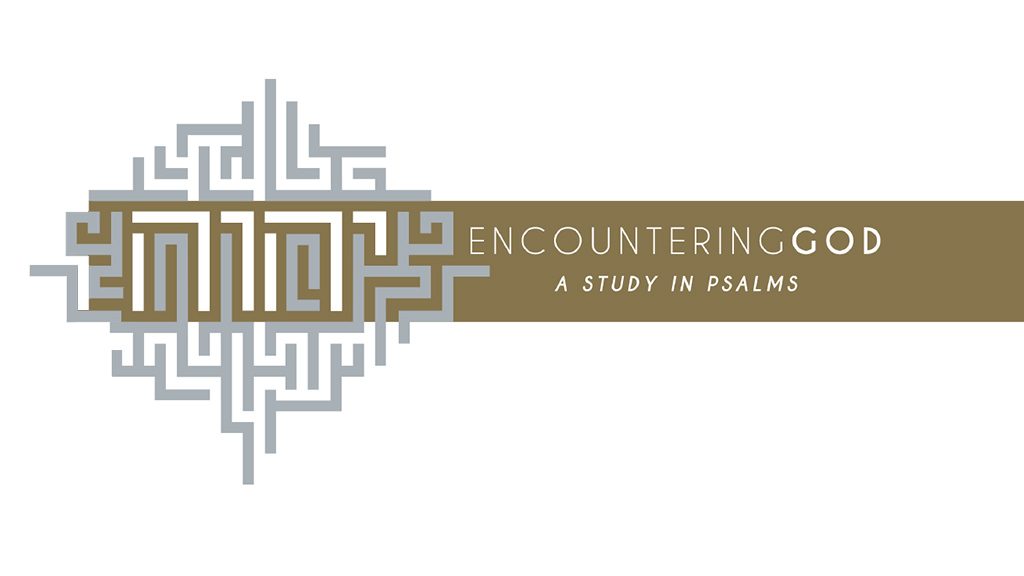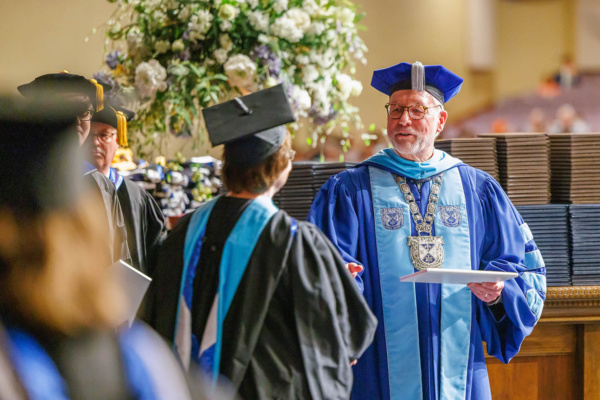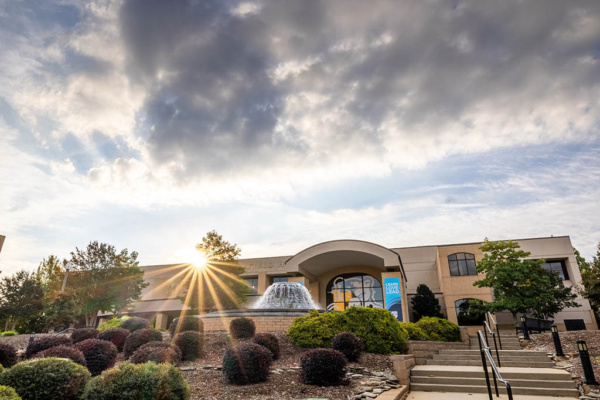Sin is common to mankind. There is a Creator God, and we break His laws. How do we respond to God when we sin personally? The Bible directs us to confess and forsake our sins (Prov. 28:13). Psalm 51 is one of seven penitential psalms, a type of lament (Pss. 6, 32, 38, 51, 102, 130, 143). It provides the clearest, most thorough description of confession in the Bible.
The title of this psalm clarifies both its author and setting: “To the chief Musician, A Psalm of David, when Nathan the prophet came unto him, after he had gone in to Bathsheba.” The setting is found in 2 Samuel 11–12 when David committed his infamous sin of adultery with Bathsheba, the wife of one of David’s mighty men, Uriah the Hittite (2 Sam. 23:39). Nathan, God’s prophet, confronted David one year after the king had sinned. Psalm 51 is David’s humble confession to God concerning his immoral affair with Bathsheba, which lead to his murder of Uriah.
David’s Cry
Psalm 51:1–3
Have mercy upon me, O God, according to thy lovingkindness: according unto the multitude of thy tender mercies blot out my transgressions. Wash me thoroughly from mine iniquity, and cleanse me from my sin. For I acknowledge my transgressions: and my sin is ever before me.
From the depths of his heart, David cried to God for mercy. He pled with God to show him His undeserved grace. David knew what he deserved. What he had done was heinous in God’s sight. But in spite of his personal failure, David still pursued God. Why? Because he intimately knew God. He had to be reconciled.
David Knew What God Was Like
Though David had sinned, he believed that God was committed to loving him. God’s lovingkindness is a central quality of His nature. The Hebrew word chesed means a loyal, steadfast love based on a covenant relationship. Tender mercies means that God is full of a deep-seated compassion and love. David knew that God’s heart was full of love for the wayward king.
David Knew What He Had Done
David uses three words to describe his sinful actions.
- Transgression means to cross the line. It conveys the idea of rebelling against divine authority and breaking the law.
- Iniquity means to go astray. It pictures leaving the righteous path to go in a crooked direction.
- Sin means to fall short or miss the mark. Sinners come up short of God’s standard.
When David sinned with Bathsheba, he broke the moral law of God, he perverted the intention of marriage between one man and one woman, and he fell abysmally short of living up to God’s standard.
David Knew What God Could Do
David understood that God could deal with his sins thoroughly and completely.
- He would blot them out like erasing or removing numbers from an accounting book.
- He would wash them away like an ancient laundryman who soaked, soaped, beat, wrung out, and rinsed clothing to get it clean.
- He would cleanse them like the process of purification in order to approach the altar or to participate in worship at the tabernacle.[1]
David’s Confession
Confession means to say the same thing. To confess our sins is to view them from God’s perspective and agree with what He says about them. What did David confess?
David Confessed the Reality of His Sin Against God
Psalm 51:4
Against thee, thee only, have I sinned, and done this evil in thy sight: that thou mightiest be justified when thou speakest, and be clear when thou judgest.
David could not escape the reality that his sin was primarily against God. He was haunted by the thought that his actions revealed that he loved himself more than he loved God. David had wronged Uriah and Bathsheba horribly, but that harm paled in comparison to his sin against God. Puritan Stephen Charnock wrote:
All sin is founded in secret atheism. … All the wicked inclinations in the heart … are sparks from this latent fire; the language of everyone of these is, I would be Lord to myself, and would not have God superior to me. … A man in every sin aims to set up his own will as his rule, and his own glory as the end of his actions against the will and glory of God.[2]
David did not justify his actions by blaming others or making excuses. He simply admitted his wrong and willingly accepted God’s just judgment.
David Confessed the Root of His Sin
Psalm 51:5–6
Behold, I was shapen in iniquity; and in sin did my mother conceive be. Behold, thou desirest truth in the inward parts: and in the hidden part thou shalt make me to know wisdom.
The root cause of David’s sin was his own nature, which he received at conception. David was a sinner long before he ever sinned. This human trait is known as original sin. As one author notes, “We have inherited from our first father not just a debt, but also a compulsion, a compulsion to reenact his alienation of himself from God.”[3]
David laid bare his soul before God and man. He had been covering his sin and living a lie for over a year. Finally he did the wisest and only righteous thing he could do. He was truthful with himself and God and turned away from his evil.
The fear of the Lord is to hate evil: pride, and arrogancy, and the evil way, and the forward mouth, do I hate. (Prov. 8:13)
David’s Cleansing
David then asks for a thorough personal cleansing. He wants to be fully right and totally restored to God. This process of cleansing includes removal, renewal, and restoration.
A Removal of Sin
Psalm 51:7
Purge me with hyssop, and I shall be clean.
David essentially asks for the same thing as he did in verses one through three, except they are in reverse order: cleanse, wash, blot. He wanted to be completely cleansed from sin. Hyssop was a small tree branch used for cleansing ceremonies for lepers (Lev. 14:4–6) or for those who touched dead things (Num. 19:18). The priests dipped hyssop in blood or water and sprinkled it on the sinner. Hyssop also was used to smear blood on Israel’s doorposts during the Passover (Ex. 12:22).
Psalm 51:7–9
Wash me, and I shall be whiter than snow. Make me to hear joy and gladness; that the bones which thou hast broken may rejoice. Hid thy face from my sins, and blot out all mine iniquities.
Under the law there was no explicit provision for the cleansing of an adulterer. David had to look beyond the law to the heart of God to find hope. He trusted God alone to make him so clean that he would be “whiter than snow.” David wanted God to look at his sins no longer but totally remove them from His record.
Isaiah had the same confidence in God’s power to cleanse: “Come now, and let us reason together, saith the Lord: though your sins be as scarlet, they shall be as white as snow” (Isa. 1:18). God can make us white than snow through the blood of Jesus (Rev. 7:14).
A Renewal of Spirit
Psalm 51:10
Create in me a clean heart, O God; and renew a right spirit within me.
David uses the language of creation (Gen. 1:1) to describe the change he desired in his heart. He wanted his spirit to be fixed or repaired so that it would be steadfast and faithful to God. He loathed the idea of falling back into impurity.
Psalm 51:11
Cast me not away from thy presence; and take not thy holy spirit from me.
David knew and had experienced God’s power in his life. He also had observed how the Spirit departed from Saul because of his rebellion and disobedience to God. David did not want to be cast aside form God’s service (1 Cor. 9:27).
A Restoration of Salvation Joy
Psalm 51:12
Restore unto me the joy of thy salvation; and uphold me with thy free spirit.
David’s reference to the departure of the Holy Spirit does not mean he was afraid he was not saved after all. He wanted to return to the sincere joy and happiness he had experienced because of his salvation. He was asking God to eagerly support him with His spiritual power and presence.
David’s Commitment
After crying out to God in humble confession of his sin and petition for cleansing, David made commitments to God. If God would forgive him, David would gladly participate in His service by instructing others, worshiping God publicly, and demonstrating true humility.
He Would Teach Sinners the Way of Salvation
Psalm 51:13
Then will I teach transgressors thy ways; and sinners shall be converted unto thee.
David could powerfully teach sinners the way of salvation because of the testimony of his own experience of God’s grace and mercy.
He Would Sing Praises to God
Psalm 51:14–15
Deliver me from bloodguiltiness, O God, thou God of my salvation: and my tongue shall sing aloud of thy righteousness. O Lord, open thou my lips; and my mouth shall shew forth thy praise.
God created us to praise Him. David lost his spirit of praise because he had covered his sin. He lived with the burden and guilt of stealing the wife of Uriah and then shedding his innocent blood. However, if God would free him from that guild, David would be free to sing and praise God again.
He Would Offer Acceptable Sacrifices to God
Psalm 51:16–17
For thou desirest not sacrifice; else would I give it: thou delightest not in burnt offering. The sacrifices of God are a broken spirit: a broken and a contrite heart, O God, thou wilt not despise.
The sacrifices that the Israelites offered to God in the temple were supposed to reflect the inner heart of the worshiper. God had no desire to receive a broken animal sacrifice unless the one giving the offering did so with a broke, contrite heart. “Man looketh on the outward appearance, but the Lord looketh on the heart” (1 Sam. 16:7).
David’s Conclusion
Psalm 51:18–19
Do good in thy good pleasure unto Zion: build thou the walls of Jerusalem. Then shalt thou be pleased with the sacrifice of righteousness, with burnt offering and whole burnt offering: then shall they offer bullocks upon thine altar.
God established the sacrificial offering system as the means by which His people individually and collectively could worship and maintain a right relationship with Him. When God accepted these sacrifices He was honored and His blessings flowed. To humble, forgiven people God will grant peace and prosperity, as well as protection to the city of Jerusalem.
Our flesh tempts us to justify our wrong actions and to cover our sin. But those who do so never prosper (Prov. 28:13). Following the inspired example David records in Psalm 51 is the only way to deal with our sin and experience true peace.
[1] Paraphrase of William D. Barrick, “Psalms, Hymns, and Spiritual Songs: The Master Musician’s Melodies,” 2005, https://drbarrick.org/files/sutdynotes/Psalms/Ps_051.pdf.
[2] Stephen Charnock, The Existence and Attributes of God (Grand Rapids: Baker Books, 1996), 93–94.
[3] Alan Jacobs, Original Sin: A Cultural History (New York: HarperOne, 2008), 32.
Listen to Dr. Eric Newton, dean of students, speak on Psalm 51:
Join us for chapel every Monday through Thursday at 11 a.m. EST.








